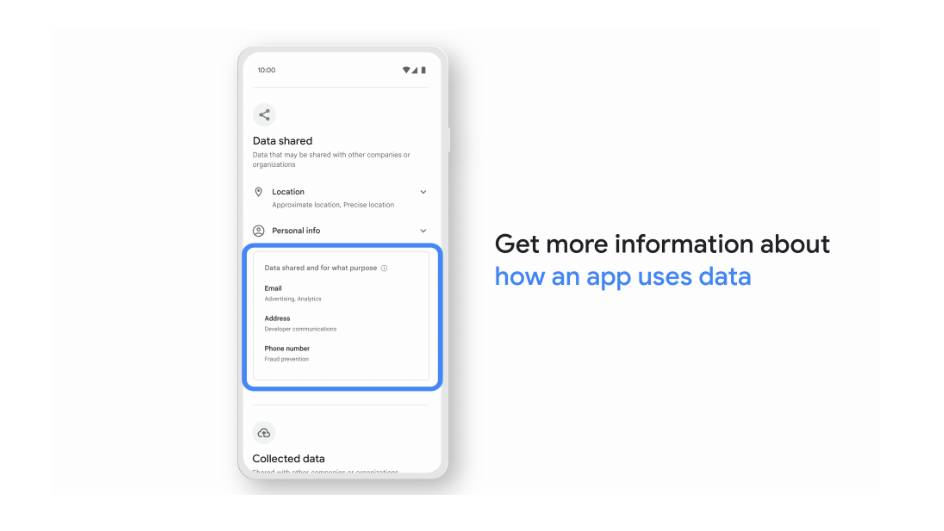Google forces developers to provide details on how apps use your data
Google's Data safety section lets you know what apps are collecting and sharing data — and why

Sign up to receive The Snapshot, a free special dispatch from Laptop Mag, in your inbox.
You are now subscribed
Your newsletter sign-up was successful
Google introduced a new Data safety section to its Play Store this week that lets users see how apps collect, share and secure their data, making it a requirement for developers to show if apps are sharing user data with third parties and more.
Announced in a blog post, the Data safety feature is now on the Google Play Store and aims to bolster security by providing users details on how an app is using their information. Developers are required to complete this section for their apps by July 20, and will need to provide updates if they change their data handling practices, too.
- Find out the best smartphones of the year
- I tried a “de-Googled” Android phone for a week
- How to prepare your Android phone for emergencies
Google's Data safety section can be found in each app, where developers show what data is being collected and why, along with allowing users to see if the app needs this data or if its optional. According to the post, users will get to see if the app is collecting data and for what purpose, if the app is sharing data with third parties, and security practices such as encryption of data or whether data can be deleted.
The Data safety section of each app will also show if a qualifying app has committed to following Google Play’s families policy to protect children on the Play Store, and if developers have a global security standard. Google often has to deal with malicious apps that steal and share personal data, so adding this section gives users a chance to see if the app is safe to download.
Google is making more improvements to provide users more freedom and privacy online, and even lets you remove your phone number and email address from search results. Along with its auto-enrolling of 2FA leading to a significant 50% drop in hacked accounts, Google is doing more to combat cyberattacks from threat actors and letting users keep their privacy secure while online.
There are a number of ways cyberthreats can slip through the cracks, however, so it's a good idea to check out the best antivirus apps to keep track on nasty malware.
Sign up to receive The Snapshot, a free special dispatch from Laptop Mag, in your inbox.

Darragh Murphy is fascinated by all things bizarre, which usually leads to assorted coverage varying from washing machines designed for AirPods to the mischievous world of cyberattacks. Whether it's connecting Scar from The Lion King to two-factor authentication or turning his love for gadgets into a fabricated rap battle from 8 Mile, he believes there’s always a quirky spin to be made. With a Master’s degree in Magazine Journalism from The University of Sheffield, along with short stints at Kerrang! and Exposed Magazine, Darragh started his career writing about the tech industry at Time Out Dubai and ShortList Dubai, covering everything from the latest iPhone models and Huawei laptops to massive Esports events in the Middle East. Now, he can be found proudly diving into gaming, gadgets, and letting readers know the joys of docking stations for Laptop Mag.

